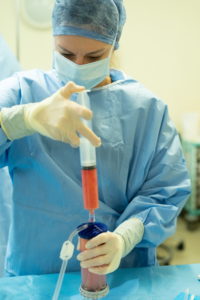Lifestyle Modification Crucial To The Management Of Joint Pain For UAE Patients
A pressing need to make changes to UAE residents’ lifestyles to reduce and prevent joint pain was highlighted by experts speaking on the second day of Arab Health, which continues until 30th January at the Dubai World Trade Centre.
Speaking at the Primary Care Conference, one of 14 Continuing Medical Education (CME) conferences taking place across the four days of the Arab Health Congress, Dr William Murrell, who is a Consultant Orthopaedic Sports and Regenerative Medicine, Healthpoint Hospital, Mubadala Healthcare, Abu Dhabi, UAE, outlined the importance of lifestyle modifications in the management of joint disorders while looking at overall health and exercising more regularly.
Dr Murrell said: “We are seeing a huge increase in metabolically related problems such as type 2 diabetes, hypercholesterolemia, hypertension and obesity in the region as a result of an increased calories count and a decrease in physical activity.
“Obesity is having a direct impact on joint pain and the many of the systems in the body. Patients develop what we call a metabolic syndrome, and most systems are impacted, specifically limiting major organ systems’ ability to function properly – to create energy, for example,” he added.
According to research produced for Arab Health by Colliers International, seven Middle Eastern countries – Kuwait, Egypt, Saudi Arabia, Bahrain, UAE, Jordan and Lebanon – have the highest ratio of obesity among adults globally, with 27% to 40% of the total population affected. Globally, 1.9 billion adults are overweight and 650 million are obese.
“Many patients I see have no injury but have long standing, or recurrent problems, however, frequently they’re overweight, or with a BMI of over 35 denoting morbid obesity, and they have, quite literally, got to the point where the additional weight is the straw that breaks the camel’s back so to speak. The body is at a stage where it is nutritionally deficient, dehydrated and in a significant amount of pain, which impacts sleep which in turn disrupts the body’s ability to regenerate,” said Dr Murrell.
The issues with obesity were further underscored when replacing the hip or knee joint. If the correct lifestyle modifications are not made, the joint is likely to wear out again, and more quickly, due to the abnormal load. There have, however, been inroads made into innovative technology and procedures lengthening the period of time before surgery is required.
The Regenerative Clinic – located in the Harley Street Medical Area (HSMA) in the UK and in the UAE – is at Arab Health 2020 to showcase an alternative treatment to orthopaedic surgery. The ground-breaking non-surgical treatment extracts fat cells from the stomach and injects them into painful joints.
The Lipogems works by extracting natural repair cells (mesenchymal stem cells) from fat, which are then injected directly into the affected area (such as the hip, knee or elbow) – harnessing the rejuvenating properties of body fat to treat conditions such as arthritis. The entire procedure from harvesting to the injection is completed in less than 30 minutes. Compared to the months of recovery associated with traditional joint replacement, the quick, non-surgical nature of the procedure means patients can return to normal activity after a day or so.
Professor Adrian Wilson, Consultant Surgeon and founder of The Regenerative Clinic explained: “I have seen the remarkable potential of this treatment first-hand. This is a new-to-the-UK and Middle East procedure, with potentially incredible results for patients. It is very exciting to be at the forefront of applying this new therapy, but the real satisfaction comes in giving people back the joints that they used to have.”
Organised by Informa Markets, an anticipated 4,250+ exhibitors from more than 64 countries and 55,000 visitors are expected to attend the 2020 edition of Arab Health which runs from 10am on Monday 27th to 5pm Thursday 30th January.









 Email: info@cyber-gear.com
Email: info@cyber-gear.com